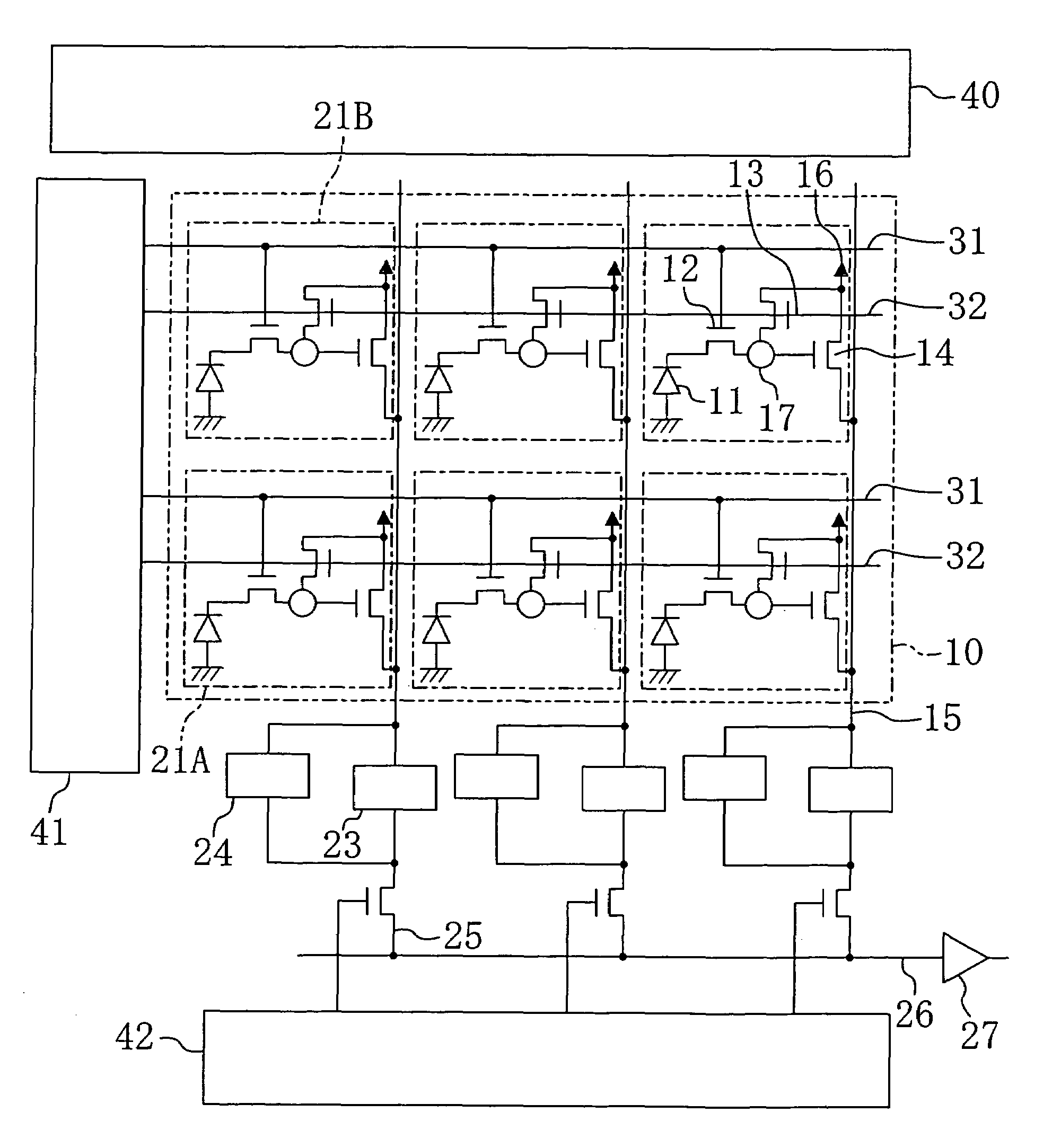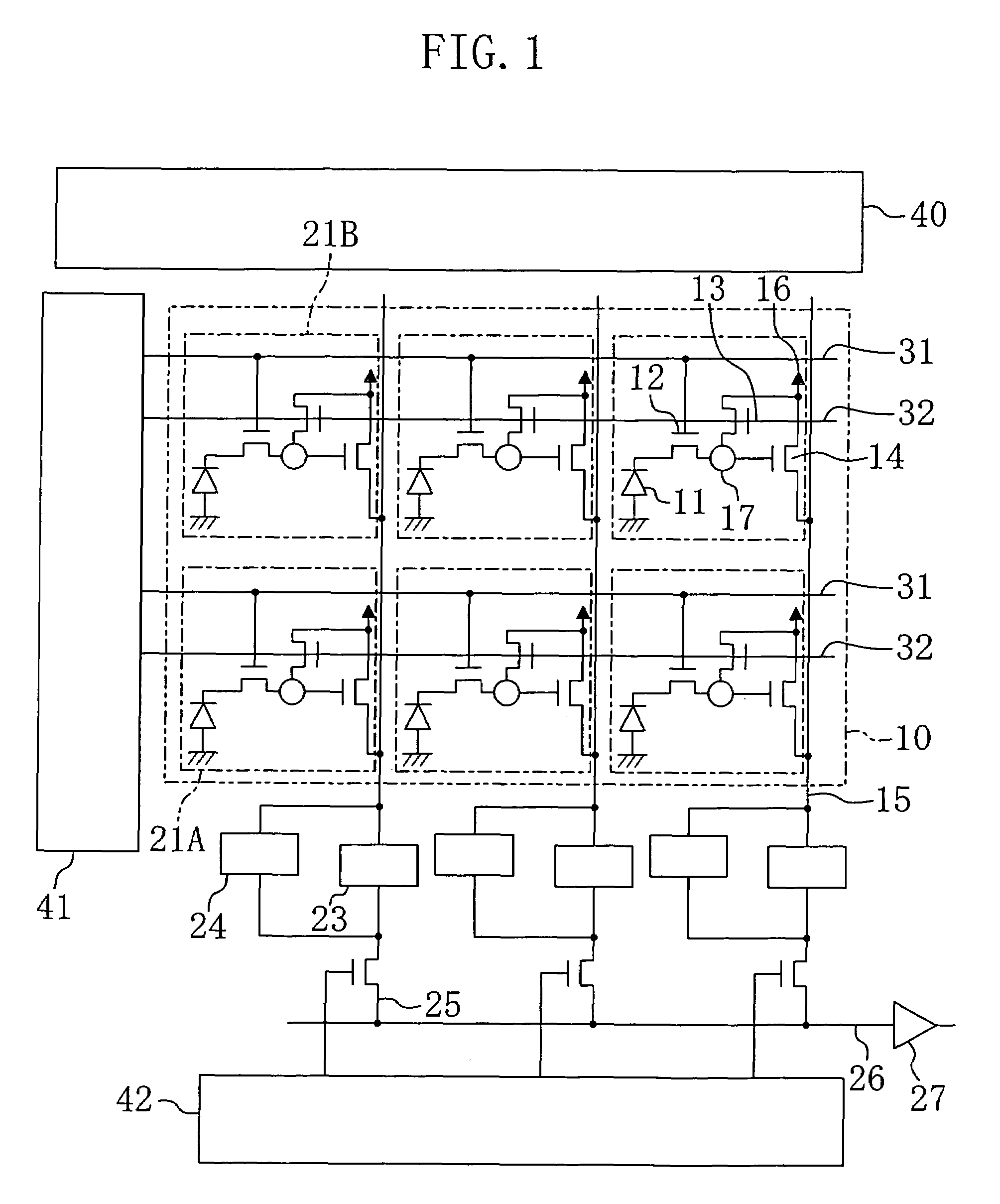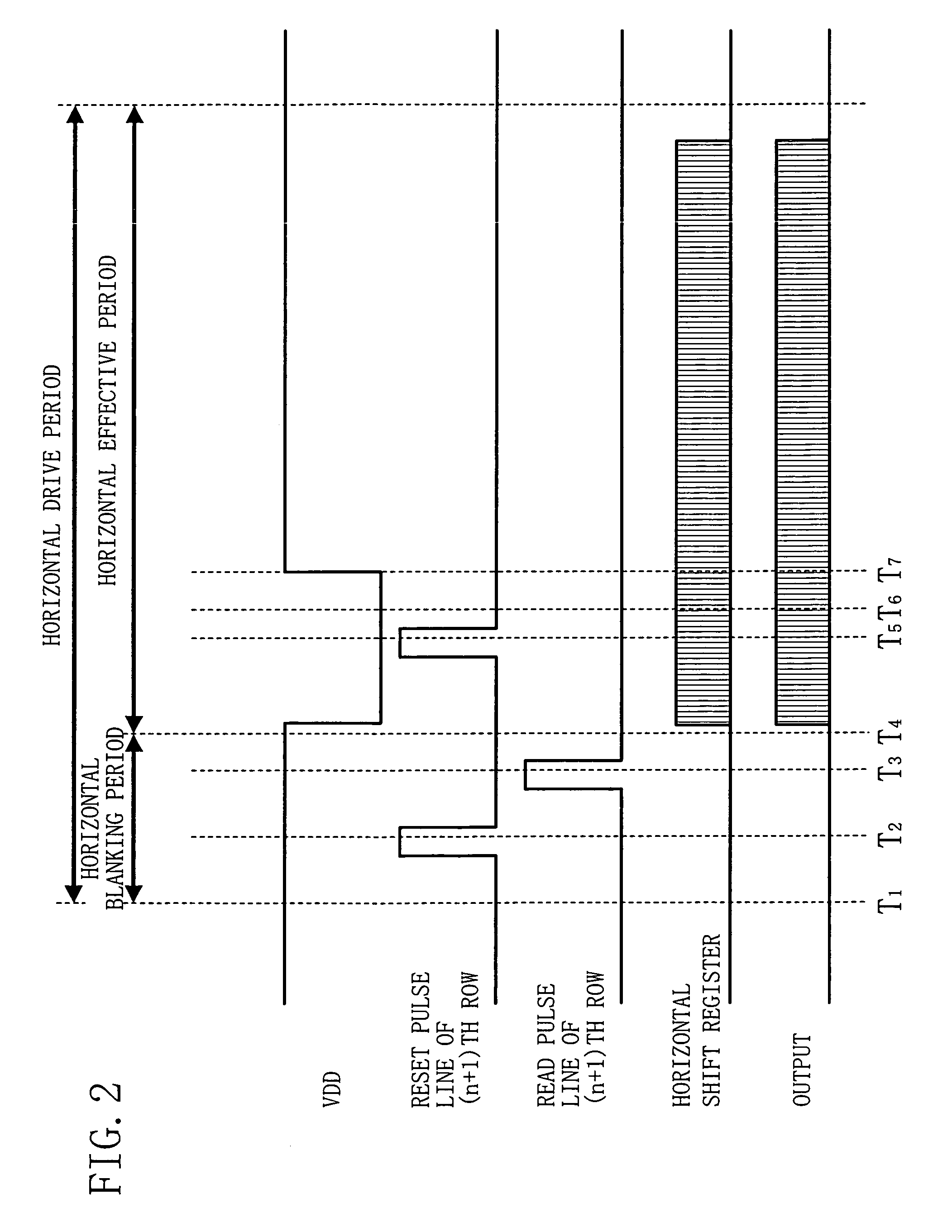Solid state imaging device, method for driving the same, and camera
a technology of solid state imaging and drive mode, which is applied in the direction of radio frequency controlled devices, instruments, television systems, etc., can solve the problems of inability to obtain accurate images, image degradation, and large degraded image quality of images created in accordance with signals read from row memories, so as to improve picture quality, improve picture quality, and save time spent on reading operation
- Summary
- Abstract
- Description
- Claims
- Application Information
AI Technical Summary
Benefits of technology
Problems solved by technology
Method used
Image
Examples
embodiment 1
[0036]Embodiment 1 of the invention will now be described with reference to the accompanying drawings. FIG. 1 shows the circuit configuration of a solid state imaging device according to Embodiment 1 of the invention. As shown in FIG. 1, the solid state imaging device of this embodiment has an imaging area 10 where a plurality of amplifying unit pixels 21 are arranged in the form of a matrix. Although the imaging area 10 shown in FIG. 1 has a matrix of two rows by three columns, the numbers of rows and columns can be arbitrarily set.
[0037]Each pixel 21 includes a photoelectric conversion portion (PD portion) 11 of a photodiode formed on a semiconductor substrate and a floating diffusion (FD) portion 17 connected to the PD portion 11 through a read transistor 12 for storing charge of the PD portion 11. The FD portion 17 is connected to a VDD power supply 16 through a reset transistor 13 and to a vertical signal line 15 through a detection transistor 14.
[0038]The gate of the read tran...
modification 1
of Embodiment 1
[0051]FIG. 3 is a timing chart in a horizontal drive period besides a vertical blanking period of a solid state imaging device according to Modification 1 of Embodiment 1. The solid state imaging device of this modification has the same circuit configuration as the solid state imaging device of Embodiment 1. In the solid state imaging device of this modification, while a reset pulse is being applied to the reset pulse line 32, the operation of the horizontal shift register 42 and the operation of the output amplifier 27 for outputting signals are stopped.
[0052]In the case where the operation for reading the signals from the respective pixels 21B of the (n+1)th row and storing them in the second memories 24 and the operation for outputting the signals of the respective pixels 21A of the nth row from the first memories 23 are performed in parallel, it is apprehended that when a reset pulse is applied from the reset pulse line 32 to the respective pixels 21B of the (n+1)...
modification 2
of Embodiment 1
[0057]FIG. 4 is a timing chart in a horizontal drive period besides a vertical blanking period of a solid state imaging device according to Modification 2 of Embodiment 1. The solid state imaging device of this modification has the same circuit configuration as the solid state imaging device of Embodiment 1. In the solid state imaging device of this modification, the operation of the horizontal shift register 42 and the operation of the output amplifier 27 for outputting signals are stopped at a rise and a fall of a drive pulse applied to a drive pulse line such as the reset pulse line 32.
[0058]Noise derived from a drive pulse is easily caused at a rise and a fall of the drive pulse. Therefore, when the operation for reading a signal from a memory is stopped at a rise and a fall of a drive pulse, a signal substantially free from noise derived from the drive pulse can be obtained and time for stopping the output operation can be short.
[0059]As a result, the operation f...
PUM
 Login to View More
Login to View More Abstract
Description
Claims
Application Information
 Login to View More
Login to View More - R&D
- Intellectual Property
- Life Sciences
- Materials
- Tech Scout
- Unparalleled Data Quality
- Higher Quality Content
- 60% Fewer Hallucinations
Browse by: Latest US Patents, China's latest patents, Technical Efficacy Thesaurus, Application Domain, Technology Topic, Popular Technical Reports.
© 2025 PatSnap. All rights reserved.Legal|Privacy policy|Modern Slavery Act Transparency Statement|Sitemap|About US| Contact US: help@patsnap.com



